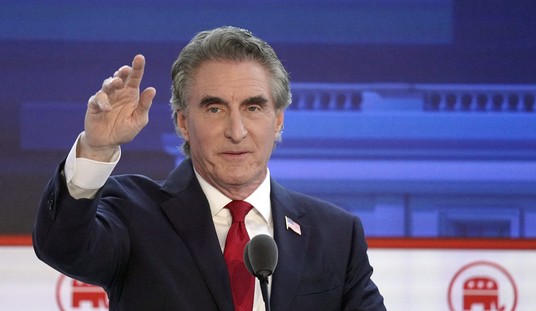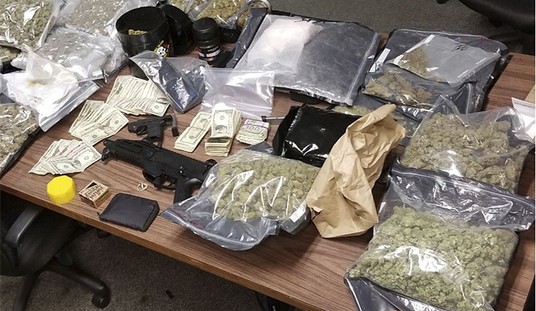It’s How to Get Clicks 101: write a story that slams Donald Trump and brand it “investigative journalism.” BuzzFeed, the premier “do it to get clicks” Web site, followed the mold this month with a piece designed to suggest that Donald Trump sells condos to money launderers. Except that the piece actually proves something like the opposite of what it purports to show. If anything, the piece shows that Trump doesn’t sell condos to money launderers any more than any other seller of luxury condos.
The piece is from January 12 but is getting some buzz on social media in the last 24 hours, with Amanda Carpenter tweeting:
https://twitter.com/amandacarpenter/status/957700075345666048
We haven’t discussed it here yet. So even though the story is two weeks old, it’s still worth picking apart to see what’s under the hood.
The breathless headline of the piece is Secret Money: How Trump Made Millions Selling Condos To Unknown Buyers. The deck headline reads: “A BuzzFeed News review of every sale of a Trump-branded condominium in the United States provides the first comprehensive look at how many went to unidentified buyers who paid cash, an indication of possible money laundering.” The opening is dramatic and sounds meaningful:
More than one-fifth of Donald Trump’s US condominiums have been purchased since the 1980s in secretive, all-cash transactions that enable buyers to avoid legal scrutiny by shielding their finances and identities, a BuzzFeed News investigation has found.
Records show that more than 1,300 Trump condominiums were bought not by people but by shell companies, and that the purchases were made without a mortgage, avoiding inquiries from lenders.
Those two characteristics signal that a buyer may be laundering money, the Treasury Department has said in a series of statements since 2016. Treasury’s financial-crimes unit has, in recent years, launched investigations around the country into all-cash shell-company real-estate purchases amid concerns that some such sales may involve money laundering. The agency is considering requiring real-estate professionals to adopt anti-money-laundering programs.
Wow! Except, not. The very first question that pops into the non-partisan reader’s head is: so how does this stack up against sales by other sellers of luxury homes and condos?
It’s in there somewhere; I know I saw it. Hang on while I scroll.
*Patterico scrolls, mutters to himself, scrolls some more, scrolls past the infographic, keeps scrolling, keeps muttering*
Ah! There it is! Right there in … paragraph 30:
The property records analyzed by BuzzFeed News would not by themselves reveal money laundering – only warning signs. And Trump is not unique in selling condos to cash-paying shell companies. BuzzFeed News examined non-Trump buildings in Manhattan and South Florida and found that roughly the same percentage of units were sold to shell companies in all-cash transactions as in Trump buildings.
Such sales are increasingly common in the expensive real estate markets where Trump has operated such as Manhattan and Florida’s Miami-Dade County.
The bolded language there in the 30th paragraph of the piece basically takes all the news value out of the story. The headline would be more accurate if it read: “Extensive Investigation Shows Trump Condo Sales No More Involved in Money Laundering Than Any Other High-End Real Estate Transactions.”
And yet, somehow, that was not the headline, for some rea$on. (I’m pretty sure I stole that gag from Allahpundit but it’s a good one.)
The rest of the story is more of the same, with alleged “red flags” that turn out to be consistent with normal business:
Corporations registered in Delaware, which FinCEN says provides “the least transparency” with corporate records of any state, bought an additional 75 Trump condos in all-cash sales that totaled $129 million. “If the corporation is set up in places where there’s some level of confidentiality, which includes Delaware, that’s another red flag,” John Madinger, a retired Treasury official and IRS special agent who investigated financial crimes, said, speaking generally about property sales.
So very suspicious! Except, Delaware is universally known to be the most favorable state for corporations — all corporations, not just dirty ones — in the United States. A 2007 publication from the State of Delaware (.pdf) gives the details: “Close to a million business entities have made Delaware their legal home. Furthermore, while the sheer number of corporations organized in Delaware is significant, more significant still is the fact that so many large and important corporations are incorporated in Delaware. Of the corporations that make up the Fortune 500, more than one-half are incorporated in Delaware.” Wow! Look at all the corporations with “red flags”! They must all be money launderers!!!1!
Or maybe they chose Delaware because of the favorable corporate environment — not just on secrecy, but on taxes, the currency and thoroughness of the statutes government corporations, and the Delaware courts, which specialize in corporate law and issues affecting corporations.
Here’s another alleged “red flag” for Trump condo salaes:
Eighty-three percent of the secretive sales occurred in markets that FinCEN is investigating for possible money laundering in real estate sales. In those markets – Manhattan, South Florida, and Honolulu – FinCEN is examining every luxury-home sale to a shell company that paid cash.
So very suspicious! Except, that’s where Trump’s condos are:
Nine of the buildings are in Manhattan, seven are in South Florida, and one each is in Chicago; Honolulu; Las Vegas; Jersey City, New Jersey; Stamford, Connecticut; and White Plains, New York.
If you do the math, you’ll see that 17 of the 23 buildings are in Manhattan, South Florida, or Honolulu. That’s 74% of the buildings. So it’s not shocking that 83% of the “secretive sales” would happen in one of those locations.
Look: it’s practically certain that a sizable percentage of these sales were made to money launderers. As the piece makes clear, that’s normal and expected in luxury real estate. BuzzFeed didn’t make up the criteria used by investigators who pursue money launderers. Many of the transactions do indeed fit the pattern.
Take the Paul Manafort case as an example of how money launderers operate in general. The indictment has allegations of money laundering through purchasing real estate (and luxury goods) paid for by shell companies based in Cyprus. That’s how they do it.
What’s offensive is not gathering the facts. It’s the spin they put on those facts.
But hey. It gets clicks. And in the end, isn’t that what really matters?













Join the conversation as a VIP Member